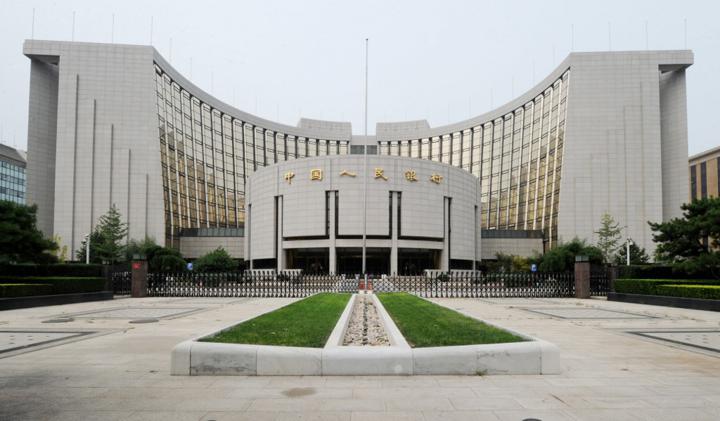(ATF) Heightened volatility and increased synchronicity across global markets has investors clamouring for new ideas and China fixed income may hold some of the solutions, according to experts.
Central banks and monetary authorities have slashed interest rates, which in turn has plunged yields to zero and even into negative territory, as the coronavirus pandemic has forced authorities to grapple with dire economic conditions.
So how can investors extract positive returns from their investments without a major compromise in credit quality?
It’s a topic that was addressed by a series of Asia Times Financial (ATF) speakers at a recent Bond Connect webinar event entitled “Time for Diversification into Chinese Bonds.”
Bond Connect is a Hong Kong-based joint venture established by the China Foreign Exchange Trade System – or CFETS, the interbank trading and foreign exchange division of China’s central bank – and the Stock Exchange of Hong Kong. It is a mutual market access system that supports investors from Mainland China and overseas by giving them a platform to trade in each other’s bond markets.
Bond Connect asked ATF founders Brett McGonegal and Evan Kalimtgis to speak at the online event, alongside Andrew Brown, Chief Investment Officer of HakuCapitalGlobal Investment Advisers and Christian Kronseder, CEO of Zurich-based AllIndexAG and creator of the ATF China Bond 50 Index, the world’s only benchmark measure of the Chinese fixed-income markets.
Increasing importance
The Chinese bond market, explained Dr. Kronseder, will be of increasing importance to investors globally.
“The volatility of Chinese bonds is very low and thus an advantage for any investor interested in allocating part of a portfolio to Chinese bonds. What might be even more striking is the fact that switching into Chinese bonds also changes the income characteristics: The investor switches from a potentially negative yield to a positive yield.”
“It seems that the Chinese credit market has somehow insulated itself from the events outside of China,” he added. “This is remarkable, because of the role China plays in the global economy and the effect of the Covid-19 pandemic on a number of leading industrialised states and regions.”
READ MORE: China to float new ‘blue bonds’ for better oceans
READ MORE: The 3 big factors behind China’s recent bond volatility
The yield on Chinese 10-year government bonds have fallen 60 bps since the start of the year, but it is still 187 bps higher than comparable US Treasuries and these bonds are exhibiting similar volatility because of the stable yuan currency.
“Year to date, the China onshore credit market has been a good diversification play for global fixed-income portfolios – it has completely decoupled from the rest of the world,” said Jenny Zeng, Co-Head Asia Pacific Fixed Income at AllianceBernstein. “For investors who have access to China fixed income and are okay with the yuan exposure, Chinese bonds are a good addition.”
So, while rate cuts and central bank purchases have pushed down the US 10-year yields by more than 120 basis points since the start of the year, China’s 10-year bond yields have declined by only 60 bps. As a result, the spread – or the risk premium – has widened to 187 bps from around 127 bps this year.
Low rates
Matthew Wong, Co-Managing Director, CCB International Securities, a guest speaker at the Bond Connect event, said China fixed income offers diversifications in issuer credit, geographic, economic cycle and currency versus the western bond universe.
“China’s economic cycle is different to that in US and the developed countries in Europe,” said Wong. “While investors can consider the USD bonds issued to offshore investors, the onshore RMB bonds could offer diversification in currency.”

The People’s Bank of China still has some monetary firepower.
Most of the major central banks have made deep cuts in their benchmark rates but the People’s Bank of China (PBoC) has made the availability of credit the priority and has been less aggressive in cutting rates. Since interest rates were liberalised in 2015, the central bank has de-emphasised benchmark rates and focused on using its growing arsenal of quasi-monetary policy tools to fine tune liquidity and interest rates, JPMorgan said.
China’s economy, while showing some signs of recovery from the massive shutdown early in the year, will probably remain weak and require further monetary and fiscal stimulus, and therefore bonds will remain supported.
Under-owned market
While volatility is lower, the ownership pattern remains underwhelming.
China is the world’s second-biggest bond market and yet it is under-owned, said Andy Brown, Chief Investment Officer at HakuCapital Global Investment Advisers and an ATF strategic partner Brown used the Bond Connect platform to point out that foreign investors owned 47% of the bonds in the US, the world’s biggest bond market, and 9% of the bonds in Japan, the world’s third-biggest bond market. Foreign ownership is still less than 5% in China.
“China’s bond market is now well diversified, offering diversification options for portfolio risk management,” he said.
Portfolio returns are becoming a big concern in traditional risk-free markets like US Treasuries, where futures are pointing to negative interest rates by 2021. China could be an alternative for investors looking for income from relatively safe assets.
For Brown, China bonds offer a safe haven and stability to emerging market portfolios in times of stress.
Listen to the full Bond Connect “Time for Diversification into Chinese Bonds” webinar here and view the Asia Times Presentations here.
























